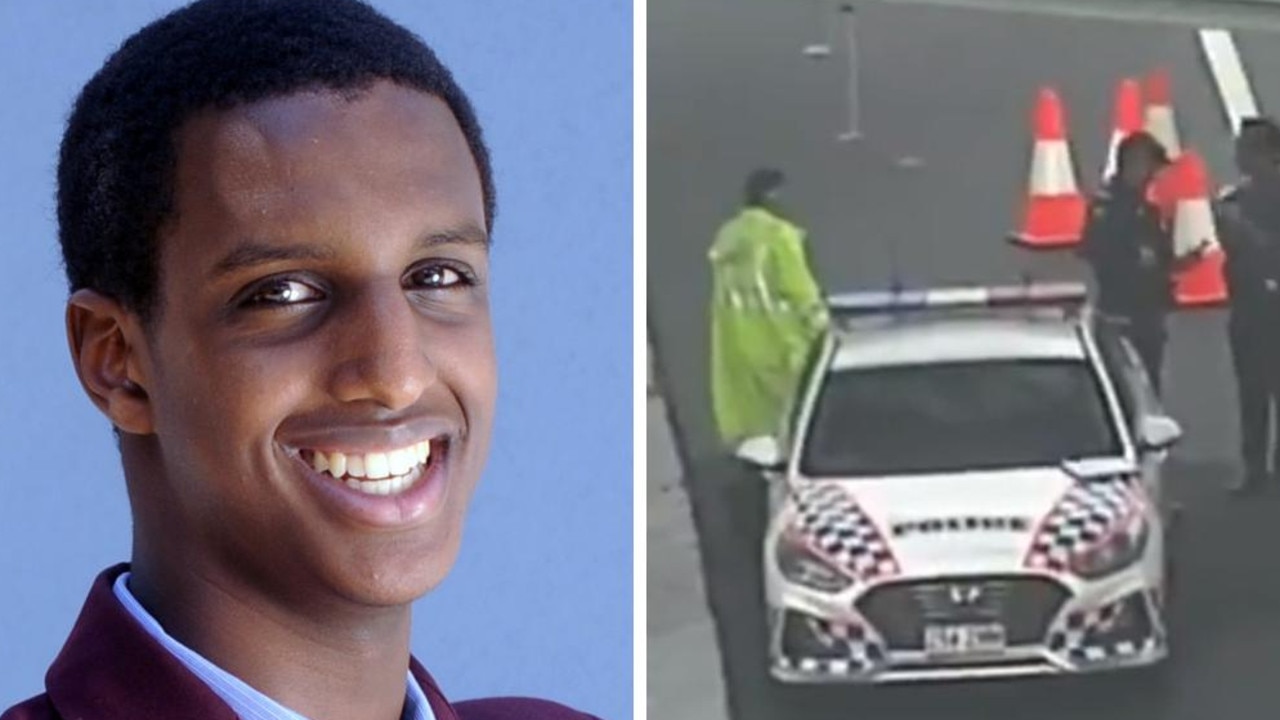Six months in captivity: Where are the Israeli hostages?
As the Hamas terrorists searched for victims, a young woman hid in a forest and frantically called her family - and they heard every single thing that happened next. Warning: Graphic
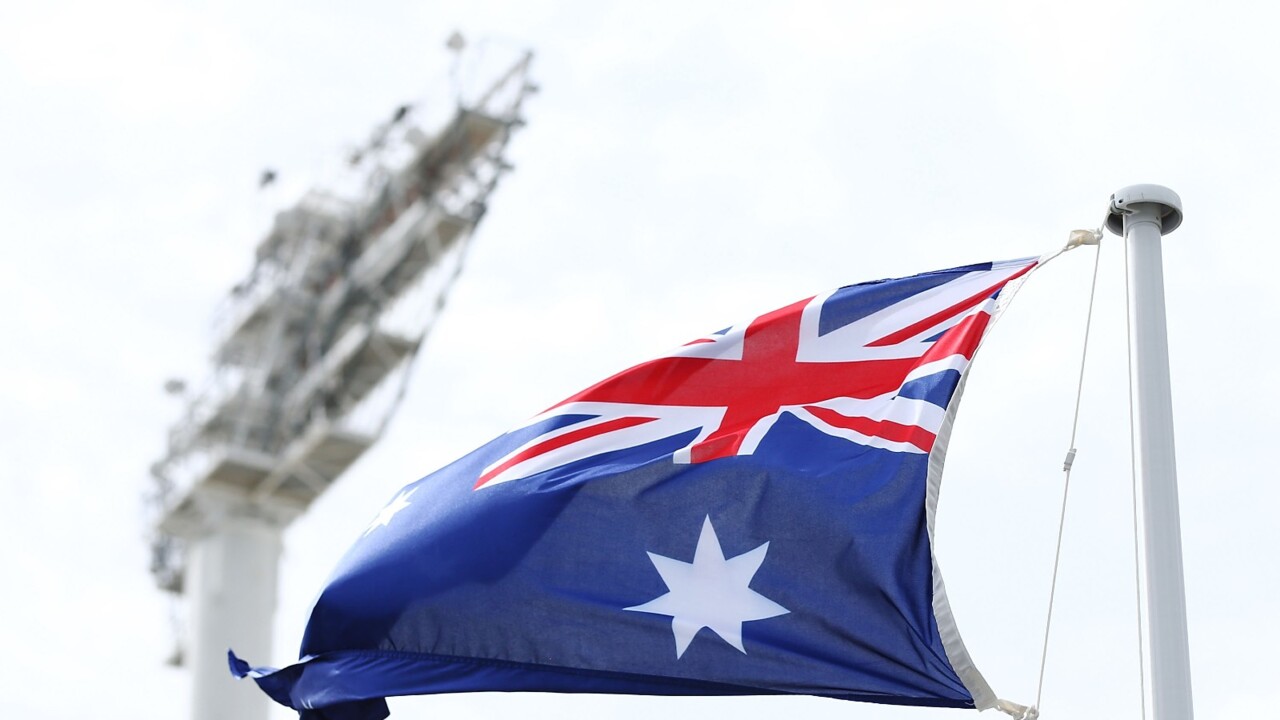
World
Don't miss out on the headlines from World. Followed categories will be added to My News.
Six months is a long time to be left wondering and hoping.
That’s all the families of the remaining hostages being held by Hamas can do, as the war rages on and new ceasefire talks come to nothing.
The October 7 assault on Israel by Hamas terrorists resulted in about 1,160 deaths in Israel, mostly civilians.
Israel’s response has killed at least 32,552 people, mostly women and children, according to Gaza’s health ministry
But amid the brutal chaos and deaths, 253 Israelis and dual citizens were taken hostage – and Israel has vowed not to stop its onslaught until all the remaining hostages are freed.
It is believed that 130 hostages abducted by Hamas on October 7 still remain in Gaza – but tragically, not all of them are alive.
The Israeli Defense Force (IDF) has confirmed the deaths of 34 of those still held by Hamas, according to new intelligence obtained by troops operating in Gaza, The Times of Israel reported.
That means there are 96 people who can still be rescued alive.
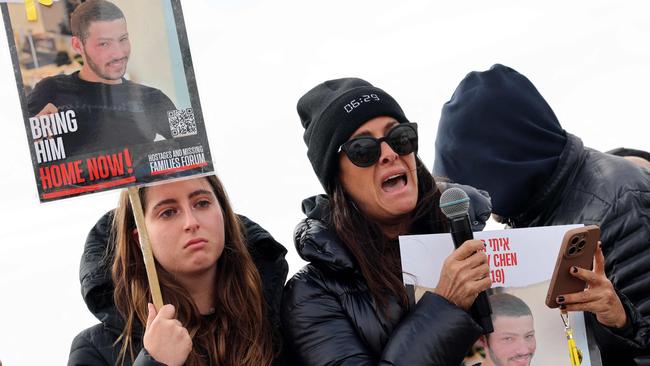
During the week long truce in late November, 105 civilians were freed from captivity. Four hostages were released before that and three hostages have been rescued by troops alive.
The bodies of 11 hostages have also been recovered, including the three that were mistakenly killed by the military.
As the months have gone on, the families have become impatient and critical of the recovery efforts and the political situation in Israel.
Ohad Yahalomi’s family were all abducted on October 7 from his home in Nir Oz, a kibbutz in southern Israel, but his wife Bat-Sheva Yahalomi and two daughters escaped after they fell from their captor’s motorbike.
His son Eitan, 12, was taken but was released in November.
“He’s strong but he’s not well,” Ms Yahalomi said, adding that he was still reliving the experiences of October 7 last year.
The absence of his father means the family are still locked in a nightmare.
“The children ask me about their father, but I don’t have any answers,” said Bat-Sheva Yahalomi, who is still hoping for her husband’s return.
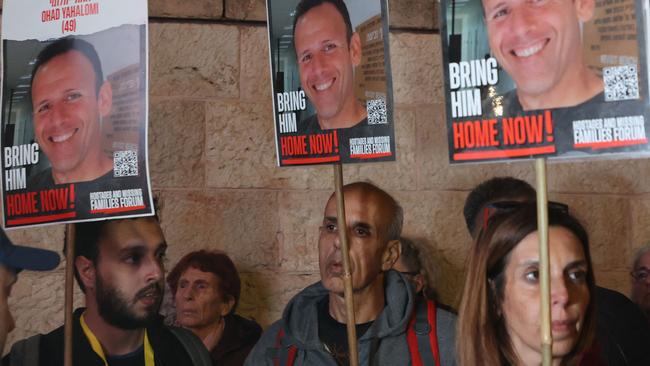
She last saw him on October 7, injured, in front of their home.
‘WE WON’T STAY SILENT ANY MORE’
Among the little told stories to emerge from the hostage crisis is those of the soldiers who were also abducted alongside the civilians.
Anat Angrest’s son Matan is one of them.
“At the request of the state and the security forces, we’ve stayed silent until today. They scared us,” she told a Tel Aviv media conference last week.
“Today we understand that as the number of days of silence grows, the number of boys who return home alive decreases.”
Israel’s Prime Minister Benjamin Netanyahu told them only military action – including entering Hamas stronghold Rafah – would bring them home.
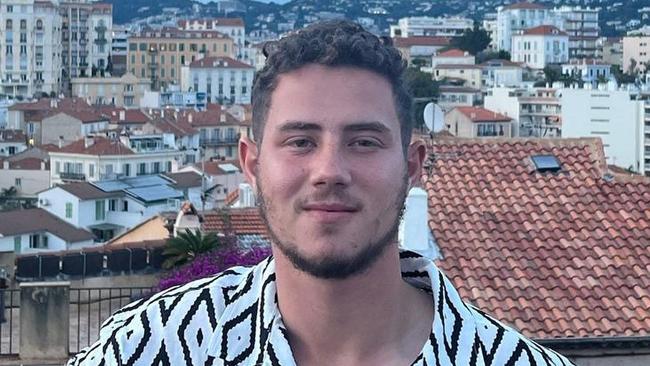
“Prime Minister Netanyahu, the responsibility to bring our sons home is yours,” Orna Neutra, whose son Omer Neutra, 22, is also a hostage, said.
She said she hadn’t heard from the government and told Mr Netanyahu to “try and imagine your sons being held by the devil for six months”.
“There is no more time. Our boys must return with all the living hostages. There is no time for partial deals,” she told The Times of Israel.
‘ALL TALK AND NO ACTION’
Among those holding out for good news are Gillian and Pete Brisley, of Wales.
They were devastated when their daughter Lianne, 48, was shot and killed at her home in Kibbutz Be’eri during the Hamas attack.
Also killed were her two daughters Noiya, 16; and Yahel, 13.
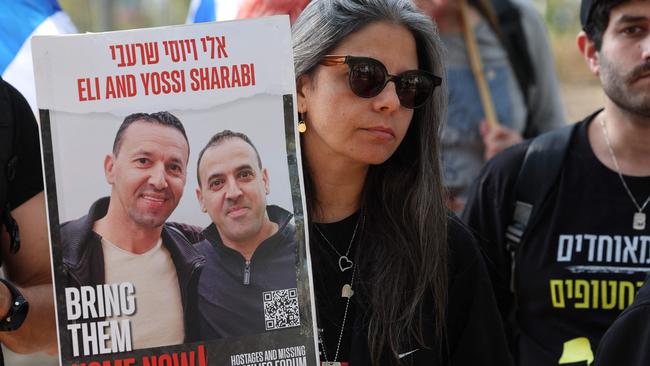
Their son-in-law Eli Sharabi is still missing.
“All we can do is hope and pray that he is in Gaza. And at some time he will come back,” Mrs Brisley told the Associated Press.
The Brisleys say they’ve tried to engage authorities in the United Kingdom to assist, but describe “all talk and no action.”
“The hope is that Eli is alive,” Mrs Brisley said.
“You have to have hope. If you haven’t got hope, you haven’t got anything.”
Eden Yerushalmi, a 24-year-old pilates teacher, was taken from a music festival as hundreds of people around her were massacred.
She was working as a bartender at the festival and called her mum to say she would soon be home. An hour later, she called again.
Her sister Shani Yerushalmi told the Jewish News she took the phone from her mum and listened to her sister describe hiding among friends bodies and then a terrifying escape into a forest to hide from the terrorists.

Eden curled up in the forest for hours.
“At one point, ants were crawling up her face and biting her. I yelled at her not to cry. I knew if she did they’d find her but they did anyway,” Shani said.
“I told her that the police were on the way. We called the army – no one came.”
Then they heard men shouting in Arabic.
“I could hear them through the phone,” Shani told the Jewish News.
“I knew that those were my last moments with my sister. I had started recording the call when she whispered, ‘They caught me.’”
On the recording, the terrorists could be heard saying, “Ta’ala,” before the call ended.
Ta’ala means Allah “the most high.”
The fate of the hostages has caused enormous angst in Israel, already traumatised over the attack, and many blame the government for failing to prevent the Hamas attack.
Protests against the government and to draw attention to the hostages have grown more frequent and more heated as the war has gone on.
Many fear the hostages are no longer a priority for the government as more countries call for a ceasefire as the war has turned much of the territory into a devastated wasteland.
The United Nations has warned that famine “is ever closer to becoming a reality in northern Gaza”, and said Gaza’s health system is collapsing “due to ongoing hostilities and access constraints”.




